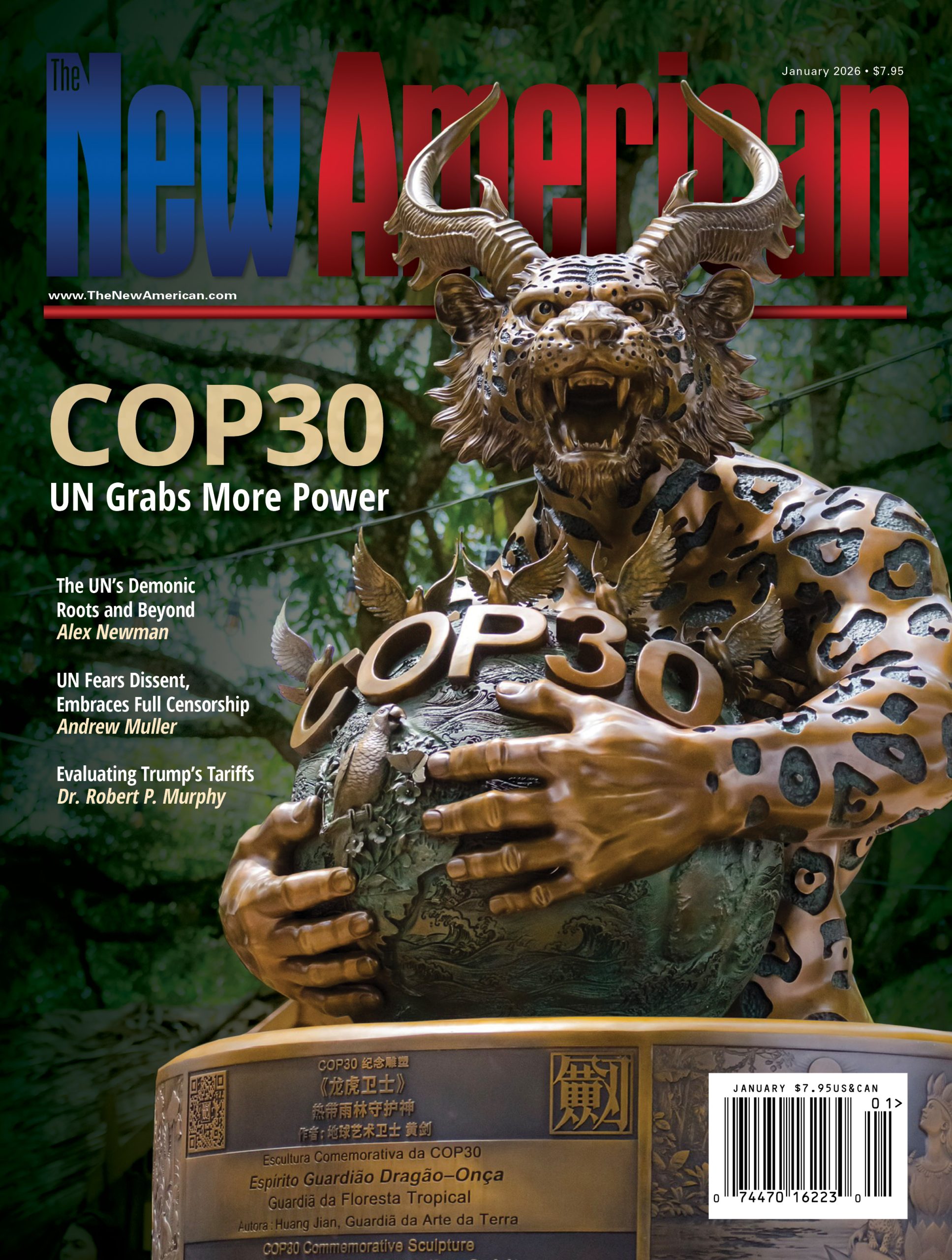
Washington Post Urged to Disclose New Owner’s CIA Ties
The Washington Post, one of the premier mouthpieces for the establishment, is facing a tsunami of criticism and calls for full disclosure after the newspaper’s new owner, Amazon CEO and Bilderberg luminary Jeff Bezos, secured a $600 million contract with the U.S. Central Intelligence Agency for “cloud” services. According to critics, the Washington Post boss’s CIA ties represent a serious conflict of interest that, under basic ethical standards in journalism, must be disclosed to readers — at least whenever the paper is reporting on the “intelligence community” and its activities. So far, however, the Post has not publicly announced whether or not it will acknowledge what analysts say is a cut-and-dry conflict of interest.
Also troubling to critics of Bezos and his budding media empire is the billionaire’s intimate ties to the very pinnacle of the establishment. Bezos, for example, has in recent years become a regular attendee of the annual Bilderberg meetings. The deeply controversial and secretive gatherings feature top international figures in government, the establishment media, military, business, banking, royalty, intelligence, academia, and more. While the outfit is fiendishly obsessed with secrecy — its attendees claim they just want to discuss global issues in private — critics have long pointed to admissions from its luminaries to suggest that Bilderberg plays a crucial but largely hidden role in directing world trends.
Another controversy emerging around Bezos and his acquisition of the Post surrounds Amazon’s treatment of WikiLeaks, the anti-secrecy group that helps whistleblowers expose government crimes by releasing secret documents. As the transparency organization was publishing U.S. State Department cables documenting myriad crimes and scandals, Amazon’s web services division infamously pulled the plug on WikiLeaks’ website. The extraordinarily controversial decision came shortly after politicians in Washington, D.C., such as Sen. Joe Lieberman, began hysterically melting down over the public exposure of their machinations.
The alternative media, of course, has seized on the conflict-of-interest story, citing the massive CIA contract with Amazon as yet another example of the establishment press run amok — Big Business and Big Government joining forces against the public. Experts in communications, media, and intelligence have also been slamming the paper and its owner for the controversial and shadowy dealings. As the public learns of the news, meanwhile, anger is growing as well. Tens of thousands of people have already signed a petition calling on the newspaper to provide full disclosure on its links to the shadowy espionage agency — especially when reporting on the CIA and related agencies or activities.
“A basic principle of journalism is to acknowledge when the owner of a media outlet has a major financial relationship with the subject of coverage,” states a petition on RootsAction, a prominent self-styled “progressive” outfit dedicated to mobilizing resistance to what it views as corporatism. “We strongly urge the Washington Post to be fully candid with its readers about the fact that the newspaper’s new owner, Jeff Bezos, is the founder and CEO of Amazon which recently landed a $600 million contract with the CIA. The Washington Post’s coverage of the CIA should include full disclosure that the sole owner of the Post is also the main owner of Amazon — and Amazon is now gaining huge profits directly from the CIA.”
Bezos purchased the Post earlier this year for $250 million from its longtime owners, the Graham family. The self-made billionaire, who earned his fortune by founding pro-Internet-taxes book giant Amazon.com in 1994, has avoided any drastic changes at the Post thus far, despite the fact that it has been losing money. Around the same time Bezos was purchasing the newspaper through his private investment company, Amazon’s cloud computing division, known as Amazon Web Services, beat IBM and secured the $600 million contract with the CIA. The billionaire has remained relatively silent on the massive deal so far, other than praising his employees for their work.
From across the political spectrum, the so-called “alternative” media — as opposed to what critics condescendingly refer to as the “mainstream media” (MSM) — have been lambasting the Post over the apparent conflict of interest. Amazon’s CIA contract is to provide “cloud computing” services to the intelligence-gathering outfit, which has led to countless headlines about a CIA “cloud” of suspicion descending over the Post. Adding fuel to the fire is the fact that the CIA and various other “intelligence” organs serving the U.S. government have a long and sordid history of manipulating the media in a bid to manipulate the public. Operation Mockingbird, for example, is among the best known scandals.
Former CIA analyst and co-founder of “Veteran Intelligence Professionals for Sanity” Ray McGovern, whose responsibilities once included chairing National Intelligence Estimates, is among the prominent figures speaking out about the CIA-Post connection. In a statement published by the Institute for Public Accuracy, McGovern said the CIA-Bezos duo offered “compelling proof that the Fourth Estate is moribund, and that defenders of the independence and integrity of the Web must thwart attempts by bozos at CIA and Bezos at the once-independent Washington Post from leaving still more stain on journalism.”
“CIA secret ties with the Post and other Fawning Corporate Media (FCM) go back several decades,” McGovern continued. “After leaving the Post in 1977, Carl Bernstein wrote a major story for Rolling Stone (Oct. 20, 1977) showing how the FCM worked hand in glove with the CIA and how this was all covered up by the committee led by [Senator] Frank Church in 1975. What emerges now is what, in intelligence parlance, is called an ‘agent of influence’ owning the Post — with a huge financial interest in playing nice with the CIA. In other words, two main players nourishing the national security state in undisguised collaboration.”
Other respected analysts offered similarly stinging criticism of the troubling relationship between the CIA, Bezos, and one of America’s most influential newspapers. University of Illinois communications Professor Robert McChesney, who has published books dealing with conflicts of interest in the media, for example, also blasted the links. “When the main shareholder in one of the very largest corporations in the world benefits from a massive contract with the CIA on the one hand, and that same billionaire owns the Washington Post on the other hand, there are serious problems,” he explained in a statement.
“The Post is unquestionably the political paper of record in the United States, and how it covers governance sets the agenda for the balance of the news media,” Prof. McChesney added. “Citizens need to know about this conflict of interest in the columns of the Post itself. If some official enemy of the United States had a comparable situation — say the owner of the dominant newspaper in Caracas was getting $600 million in secretive contracts from the Maduro government — the Post itself would lead the howling chorus impaling that newspaper and that government for making a mockery of a free press. It is time for the Post to take a dose of its own medicine.”
Even former reporters for the Washington Post have criticized the paper and its owner over the conflict of interest. While Bezos’s Bilderberg links have not received much attention thus far, Amazon’s treatment of WikiLeaks has been raising alarms among some media watchdogs as well. However, despite the recent uproar, the Post is hardly the only major U.S. paper to come under fire for controversial relationships with the powerbrokers and officials they are supposed to keep in check.
Indeed, critics of the establishment press come from all across the political spectrum. The major criticism all sides appear to agree on, though, is that the most of the “mainstream media” have failed spectacularly in their supposed job to keep the American people properly informed. The outcry surrounding recent developments at the Washington Post barely scratches the surface of the problem. It remains to be seen if, when, or how the Post will respond to the criticism.
Photo: AP Images
Alex Newman is a correspondent for The New American, covering economics, politics, and more. He can be reached at [email protected].
Related articles:
Washington Post: NSA’s Policy Is “Collect It All,” and Says That’s Okay
Media Bias: Demonizing the Right
Internet Tax Bill Draws Strange Alliances
Media Research Center Celebrates 25 Years of Exposing Media Bias
As Trust in U.S. Press Plummets, Journalist Seeks “Truth in Media”
New York Times a “Propaganda Megaphone” for War, Says Former Reporter
Awareness of Bilderberg Cabal Explodes in 2011
After Bilderberg Meeting, Facebook Official Says End Internet Anonymity
U.S. Bilderberg Attendees Violating Federal Law, Activists Say




